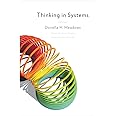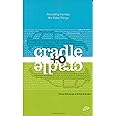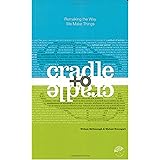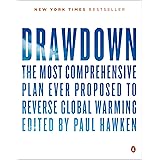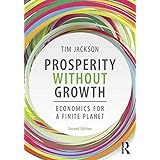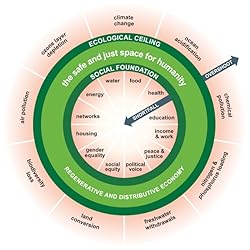
Enjoy fast, free delivery, exclusive deals, and award-winning movies & TV shows with Prime
Try Prime
and start saving today with fast, free delivery
Amazon Prime includes:
Fast, FREE Delivery is available to Prime members. To join, select "Try Amazon Prime and start saving today with Fast, FREE Delivery" below the Add to Cart button.
Amazon Prime members enjoy:- Cardmembers earn 5% Back at Amazon.com with a Prime Credit Card.
- Unlimited Free Two-Day Delivery
- Streaming of thousands of movies and TV shows with limited ads on Prime Video.
- A Kindle book to borrow for free each month - with no due dates
- Listen to over 2 million songs and hundreds of playlists
- Unlimited photo storage with anywhere access
Important: Your credit card will NOT be charged when you start your free trial or if you cancel during the trial period. If you're happy with Amazon Prime, do nothing. At the end of the free trial, your membership will automatically upgrade to a monthly membership.
Buy new:
-34% $15.04$15.04
Ships from: Amazon.com Sold by: Amazon.com
Save with Used - Good
$12.99$12.99
Ships from: Amazon Sold by: Zoom Books Company





Download the free Kindle app and start reading Kindle books instantly on your smartphone, tablet, or computer - no Kindle device required.
Read instantly on your browser with Kindle for Web.
Using your mobile phone camera - scan the code below and download the Kindle app.

Image Unavailable
Color:
-
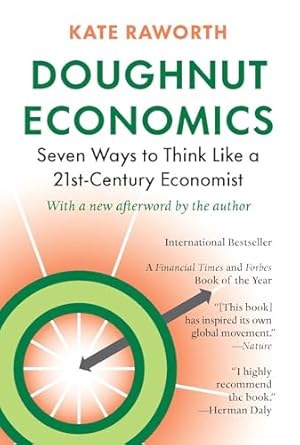
-
-
- To view this video download Flash Player
-

-

-

-

-
 2 VIDEOS
2 VIDEOS -

 Audible sample Sample
Audible sample Sample 


Doughnut Economics: Seven Ways to Think Like a 21st-Century Economist Paperback – Illustrated, March 29, 2018
Purchase options and add-ons
*The Sunday Times Bestseller
*A Financial Times Book of the Year
*A Forbes Book of the Year
*Winner of the Transmission Prize 2018
*Longlisted for the FT/McKinsey Business Book of the Year Award 2017
*Porchlight “Best Business Book of 2017: Current Events & Public Affairs”
The book that redefines economics for a world in crisis.
Economics is the mother tongue of public policy. It dominates our decision-making for the future, guides multi-billion-dollar investments, and shapes our responses to climate change, inequality, and other environmental and social challenges that define our times.
Pity then, or more like disaster, that its fundamental ideas are centuries out of date yet are still taught in college courses worldwide and still used to address critical issues in government and business alike.
That’s why it is time, says renegade economist Kate Raworth, to revise our economic thinking for the 21st century. In Doughnut Economics, she sets out seven key ways to fundamentally reframe our understanding of what economics is and does. Along the way, she points out how we can break our addiction to growth; redesign money, finance, and business to be in service to people; and create economies that are regenerative and distributive by design.
Named after the now-iconic “doughnut” image that Raworth first drew to depict a sweet spot of human prosperity (an image that appealed to the Occupy Movement, the United Nations, eco-activists, and business leaders alike), Doughnut Economics offers a radically new compass for guiding global development, government policy, and corporate strategy, and sets new standards for what economic success looks like.
Raworth handpicks the best emergent ideas―from ecological, behavioral, feminist, and institutional economics to complexity thinking and Earth-systems science―to address this question: How can we turn economies that need to grow, whether or not they make us thrive, into economies that make us thrive, whether or not they grow?
Simple, playful, and eloquent, Doughnut Economics offers game-changing analysis and inspiration for a new generation of economic thinkers.
"This is sharp, significant scholarship . . . Thrilling."―Times Higher Education
"Raworth's magnum opus . . . Fascinating."―Forbes
"Doughnut Economics shows how to ensure dignity and prosperity for all people."―Huffington Post
- Print length320 pages
- LanguageEnglish
- PublisherChelsea Green Publishing
- Publication dateMarch 29, 2018
- Dimensions6 x 1 x 9 inches
- ISBN-101603587969
- ISBN-13978-1603587969
The Amazon Book Review
Book recommendations, author interviews, editors' picks, and more. Read it now.
Frequently bought together

Similar items that may ship from close to you
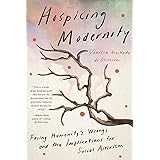 Hospicing Modernity: Facing Humanity's Wrongs and the Implications for Social ActivismVanessa Machado de OliveiraPaperback
Hospicing Modernity: Facing Humanity's Wrongs and the Implications for Social ActivismVanessa Machado de OliveiraPaperback
 Today we have economies that need to grow, whether or not they make us thrive: what we need are economies that make us thrive, whether or not they grow.Highlighted by 2,181 Kindle readers
Today we have economies that need to grow, whether or not they make us thrive: what we need are economies that make us thrive, whether or not they grow.Highlighted by 2,181 Kindle readers First, rather than narrowly self-interested we are social and reciprocating. Second, in place of fixed preferences, we have fluid values. Third, instead of isolated we are interdependent. Fourth, rather than calculate, we usually approximate. And fifth, far from having dominion over nature, we are deeply embedded in the web of life.Highlighted by 1,825 Kindle readers
First, rather than narrowly self-interested we are social and reciprocating. Second, in place of fixed preferences, we have fluid values. Third, instead of isolated we are interdependent. Fourth, rather than calculate, we usually approximate. And fifth, far from having dominion over nature, we are deeply embedded in the web of life.Highlighted by 1,825 Kindle readers Today’s economy is divisive and degenerative by default. Tomorrow’s economy must be distributive and regenerative by design.Highlighted by 1,402 Kindle readers
Today’s economy is divisive and degenerative by default. Tomorrow’s economy must be distributive and regenerative by design.Highlighted by 1,402 Kindle readers
From the Publisher

|
|
|
|
|---|---|---|
|
|
|
|

Editorial Reviews
Review
“Written in a clear and engaging style, Kate Raworth explains to the general public and students what is wrong with the standard curriculum in economics, and how to break out of that monopolized mental prison. . . . [Doughnut Economics is] a cause for celebration. . . . I highly recommend the book.”―Herman Daly, Ecological Economics
“Raworth’s magnum opus. . . . A fascinating reminder to business leaders and economists alike to stand back at a distance to examine our modern economics.”―Forbes, “Best Business Books of 2017”
“An admirable attempt to broaden the horizons of economic thinking.”―Financial Times, Martin Wolf, “Best Books of 2017: Economics”
“A radical new economic theory to help save the environment.”―Time
“‘Sustainability in all things’ should be our species’ philosophy; the Doughnut Model our compass for the journey.”―Sir David Attenborough
“[It offers] the fresh thinking about the economy needed in light of the pandemic."―Pope Francis
“A thought-provoking book.”―John Cassidy, The New Yorker
“Can anyone seriously suppose that today’s economic orthodoxies are going to bring the world back from the brink of chaos? We need to fundamentally rethink the way we create and distribute wealth, and Kate Raworth’s Doughnut Economics provides an inspiring primer as to how we must now set about that challenge. I hope it ushers in a period of intense debate about the kind of economy we now so urgently need.”―Jonathon Porritt, author of The World We Made; founding director, Forum for the Future
“An excellent book.”―Harvard Business Review
“I read this book with the excitement that the people of his day must have read John Maynard Keynes’s General Theory. It is brilliant, thrilling, and revolutionary. Drawing on a deep well of learning, wisdom, and deep thinking, Kate Raworth has comprehensively reframed and redrawn economics. It is entirely accessible, even for people with no knowledge of the subject. I believe that Doughnut Economics will change the world.”―George Monbiot, author; columnist at The Guardian
“Doughnut Economics [takes] aim at traditional economic growth models.”―New York Times
“What if it were possible to live well without trashing the planet? Doughnut Economics succinctly captures this tantalising possibility and takes up its challenge. Brimming with creativity, Raworth reclaims economics from the dust of academia and puts it to the service of a better world.”―Tim Jackson, author of Prosperity without Growth
“Doughnut Economics has made waves around the world.”―PBS News Hour
“Not long ago, well-known development economist Kate Raworth’s Doughnut graphic became an overnight sensation. Now this marvelous book clearly and succinctly explains her re-envisioning of the economy. On a bookshelf crowded with attempts to reframe economic thinking and the way forward, this book stands out―brilliantly.”―Juliet Schor, author of Plentitude
“This is sharp, significant scholarship. . . . Thrilling.”―Times Higher Education
“Economics rightly is under the microscope. Kate Raworth’s insightful Doughnut is what every budding economist should see when they first peer down the lens.”―John Fullerton, founder and president, Capital Institute
“[Raworth's] biggest question . . . is one that terrifies all mainstream economists: is ‘growth’ endless?”―Andrew Marr, The Spectator
“This is truly the book we’ve all been waiting for. Kate Raworth provides the antidote to neoliberal economics with her radical and ambitious vision of an economy in service to life. Given the current state of the world, we need Doughnut Economics now more than ever.”―L. Hunter Lovins, president and founder, Natural Capitalism Solutions
“A compelling and timely intervention.”―Caroline Lucas MP, Books of the Year, The Ecologist
“Doughnut Economics shows how to ensure dignity and prosperity for all people.”―Huffington Post
“An innovative vision about how we could refocus away from growth to thriving.”―Daily Mail
“A brand new way of conceptualising economic development without being tied to infinite growth . . . A useful idea.”―The Guardian
“A radical and solidly-argued book . . . Plausible and informative.”―El Pais
“Doughnut Economics makes a complex thesis accessible.”―George Alagiah, BBC News
“Doughnut Economics has inspired its own global movement.”―Nature
“Required summer reading for Labour politicians and activists.”―openDemocracy
“[A] sharp, insightful call for a shift in thinking . . . Raworth’s energetic, layperson-friendly writing makes her concept accessible as well as intriguing.”―Publishers Weekly
“[Reveals] the huge hold in the standard economic model . . . offers a mountaintop view of the world.”―Knowledge@Wharton: The Journal of Wharton Business School
“Doughnut Economics is excellent at describing economic concepts in accessible terms. . . . Raworth’s in-depth summary of climate change is very well argued.”―London School of Economics Book Review
“I see a lot of books presuming to explain what’s wrong with the economy and what to do about it. Rarely do I come across one with the consistent new paradigm frame, historical depth, practical sensibility, systemic analysis, and readability of Doughnut Economics. . . .[It] provides both the nail in the coffin of standard economics and the real-world-based intellectual structure from which an authentic real-world economics for the 21st century can grow.”―David Korten, YES! Magazine
“Doughnut Economics is both simple and compelling: Design an economy that operates within the two rings of a donut―the social foundation of everyone having access to life’s essentials, and the ecological ceiling of planetary boundaries.”―Politico.com
“Kate Raworth, formerly of Oxfam, shows that the undulations of equality and justice are really very profound. . . . [Her] aim is to adjust human use of the processes of planetary dynamics so that the overall outcome of development is survival in peace, health, prosperity and companionship.”―British Academy Review
"Proposes a new economic model―one that embeds the human economy within the natural world and within society, rather than being distinct from either."―The Ecologist
"Another look at measuring growth . . . Raworth makes several key suggestions for reform."―MoneyWeek
"Judiciously combining history, theory, anecdotes and diagrams, [Raworth] provides a narrative that is easy to follow. . . . Worthwhile and challenging."―Frontline
“A new book you will need to know about . . . Kate writes beautifully. . . . If only ten percent of the ideas get implemented, the world will be a much better place.”―Duncan Green, Oxfam Blogs
About the Author
Kate Raworth is a renegade economist focused on exploring the economic mindset needed to address the 21st century’s social and ecological challenges. She is a senior visiting research associate and advisory board member at Oxford University’s Environmental Change Institute and teaches in its masters program for Environmental Change and Management. She is also senior associate of the Cambridge Institute for Sustainability Leadership and a member of the Club of Rome. Over the past 20 years Raworth has been a senior researcher at Oxfam, a co-author of UNDP’s annual Human Development Reports and a fellow of the Overseas Development Institute, working in the villages of Zanzibar. She is also on the advisory board of the Stockholm School of Economics’ Global Challenges Programme and Anglia Ruskin University’s Global Resource Observatory. Kate lives in Oxford, England.
Product details
- Publisher : Chelsea Green Publishing; Reprint edition (March 29, 2018)
- Language : English
- Paperback : 320 pages
- ISBN-10 : 1603587969
- ISBN-13 : 978-1603587969
- Item Weight : 2.31 pounds
- Dimensions : 6 x 1 x 9 inches
- Best Sellers Rank: #35,623 in Books (See Top 100 in Books)
- #8 in Sustainable Business Development
- #10 in Economic Policy
- #22 in Environmental Economics (Books)
- Customer Reviews:
About the author

Discover more of the author’s books, see similar authors, read author blogs and more
Customer reviews
Customer Reviews, including Product Star Ratings help customers to learn more about the product and decide whether it is the right product for them.
To calculate the overall star rating and percentage breakdown by star, we don’t use a simple average. Instead, our system considers things like how recent a review is and if the reviewer bought the item on Amazon. It also analyzed reviews to verify trustworthiness.
Learn more how customers reviews work on AmazonReviews with images
-
Top reviews
Top reviews from the United States
There was a problem filtering reviews right now. Please try again later.
Kate Raworth, who trained in economics at Oxford, has never quite felt comfortable in her chosen field of study. And for good reason. The neoliberal economic model that has guided us for the last three or four decades, based on fundamental assumptions that pre-date us all by several generations, are not so much flawed as they are misaligned, to the point of actual destruction, to the social, economic, political, and environmental world in which we live the 21st Century.
As an economics major myself back in the 1970s, and a corporate warrior who lived, breathed, and trusted the neoliberal creed for four subsequent decades, I am both an unlikely and uber-supporter of Raworth’s perspective and ideas.
The markets and the consumer are decidedly not efficient; as every leading economist has assumed but every businessperson knows is bullocks. If they were, strategic planning would be a lot more straightforward and companies would be a lot more consistently successful. Companies would not have to constantly reinvent themselves, the turnaround experts and bankruptcy attorneys would have little to do, and investors could take long holidays on the private islands they could easily afford.
The resources we rely on are not unlimited. Why are we arguing about the science of climate change? Look around, and if you still don’t see it, sit down and take an inventory of the resources you personally consume and plot it against whatever happiness index you like. The imbalance, you will quickly conclude, is absurd.
I lived as an ex-patriate industrialist in a part of the world where you could not drink the water or, on many days, breathe the air. On both counts I am being quite literal. And I can tell you that on both counts nothing else matters. Now back in the US Midwest I can tell you both that I continue to pay the price and that our collective attitude here in the developed world toward these issues is conscious but dismissive. In short, we have been spared true understanding in the same way the blind are spared having to look at the ubiquitous “comparative selfie” that seems to be the single most transformative accomplishment of social media at the moment.
We do not assign value to the economic inputs and the assets that really matter. There is no place on the balance sheet for engagement or innovation, and nowhere is there an accounting for shared (what Raworth calls common) assets, like safety, education, infrastructure, the country’s defenses, etc. We’re measuring well-being by the quality of the creases in our trousers.
I could go on, but there is no need. Raworth has already completed that task. Which is why this book should be required reading for every adolescent in every corner of the world. The universe is interconnected in ways that we have known, but largely ignored, since the beginning of time. We see the world in a linear framework that reflects and reinforces our deductive worldview in which logic and reason progress from left to right and down to up. Our top is where our smarts reside. Our backs contain the backbone that carries the weight of our ever-extending bellies (mine at least).
Nowhere in economics has this been more obvious or more damaging to our long-term interests than our pre-occupation with economic growth. It’s not an assumption, really. It’s a necessity. As we’re reminded daily, we need economic growth to keep people employed and wages rising. Without new air going in each and every moment, the balloon deflates. Doesn’t that mean, however, that at some point the balloon reaches its innate capacity and ultimately bursts?
Raworth’s perspective is spot on and the writing is excellent. She has an obvious knack of distilling what may at first seem complex down to the simple and straightforward without losing anything in the translation.
I think of the debate in more personal terms. We currently see our world through a very individual-centric lens. In economics, as Raworth covers here, the macro exists to serve the micro. In politics we are motivated by individual rights and freedoms. In medicine we focus on individual health and well-being. Even in psychology we are absorbed with personal happiness and personal measures of purpose and contentment.
The result is that our political, social, economic, and even religious spheres of influence operate in independent isolation. And that was okay in the past since there were far fewer of us, resources were in abundance, and we lived and acquired information and knowledge in a largely local ecosystem.
But technology, population growth, and constant advances in science have changed all that. Those spheres are now completely inter-connected. Social media drives politics. Politics drives social identity. Economics drives social injustice. The need for security impinges religious freedom.
Raworth’s donut is the perfect visual analogy for the need to think less in terms of absolutes and more in terms of balance. I also think of it in terms of balancing the deductive Western worldview with the more inductive Eastern worldview. Most importantly, we must learn to think in terms of “we” rather than “I.”
All of our systems of influence, from the political to the economic, must be transformed to promote collective balance rather than individual hegemony.
In the last sections of the book, Raworth addresses the question of the era: Can the plane of economic growth, as we currently define it, continue to soar ever upward; must it level out, and if so how do we fulfill our economic expectations; or is it time to land and make do?
As with the rest of the book Raworth does the conundrum justice and lays out all of the options thoroughly and with clarity. I think there is only one element that is not missing, but perhaps deserves more emphasis.
We continue to treat economics, politics, philosophy, sociology, psychology, and the hard sciences as distinct and discrete spheres of knowledge and influence. With advances in technology that have entirely transformed all aspects of our lives, that is simply no longer possible. We must take a page from our leaders in science who are quickly integrating all functional disciplines into, essentially, one. That is how the universe ultimately works.
One of the arguments for pushing the plane higher and higher is the recognition that democracy, as we have known it, will die if we don’t. It is, however, already dying, if not already dead. The democratic justification for growth, in other words, is a specious argument. We must redefine what it means to be free.
To borrow a page from Darwin, none of the current disciplines will give up its identity quietly (With perhaps the exception of philosophers, who have largely given up or gone into hiding. Sadly.). Each will fight to the death to preserve its own privilege.
It’s a bit like the game of Jenga. Who goes first?
I won’t say Raworth would endorse this priority but she certainly makes the case for it. I think the first to go has to be the notion of shareholder supremacy. It is an anachronism of the most abusive kind, positing, as Raworth notes, employees as the ultimate outsiders looking in. It’s an unsustainable model. And it’s pure fallacy. To say that today’s investors own our corporations is like saying that the gamblers own the casinos. (At least in the case of gambling, the gamblers at least set foot in the casino.) As in the case of poker, the gamblers may own the pot, but not the cards, the table, or the dealer.
And, as Raworth futher notes, changing the perspective will require a complete transformation of the process by which we currently manage our largest corporations. So be it. If it doesn’t start there, I don’t think any of the other transformative needs are feasible.
Beyond that I believe that the only viable option for transformative change is to address the problem from the consumption and expectation side of things. We just don’t need all of this “stuff” in order to live fulfilling lives. We can and should live much more locally. And technology has given us the perfect opportunity.
What really matters in life is to think and dream globally and the Internet has given us that opportunity at next to zero cost. The next step should be an easy one although no gambler ever got rich betting against the power and resilience of those entrenched interests who wish to protect the status quo. (Which is why our politics are such a mess.)
At any rate, this really is a great book and I do hope we can collectively push it to the top of the bestseller list where it belongs. It’s a discussion we need to have, not just with our economists, but with our children, our colleagues, and our loved ones. (Not to imply we don’t love our children.)
Firstly I think the book expects that the reader is not completely new to the field of economics. Now, it does not require or state this, but some of the concepts and chapters would definitely be easier to navigate if I knew a bit on the subject matter. The idea being that the language is not completely watered down and some portions can often be a bit dense to navigate through.
However, my biggest qualm with this book is that there is a theme of nothing being good enough. To a point where it seems overtly pessimistic, since even the policies that the author claims as good steps towards a better future, she doubles back saying that they are not still enough and we have to completely remodel the way we think of business, economics, enterprises etc. This often strikes me as grandiose ideas that build on rainbows but can be seen as far as detached from reality. I do like the fact that she things loftily about the goals that we should achieve but somewhere in there it becomes a bit too fictional in my opinion.
However, towards the end, the books is quite a revelation, so if you can survive the theme of pessimism through the middle, you will be rewarded with some brilliant thoughts towards the end.
Would definitely recommend a read, but preferably when you have some open headspace and time to invest in learning more about the subject matter.



